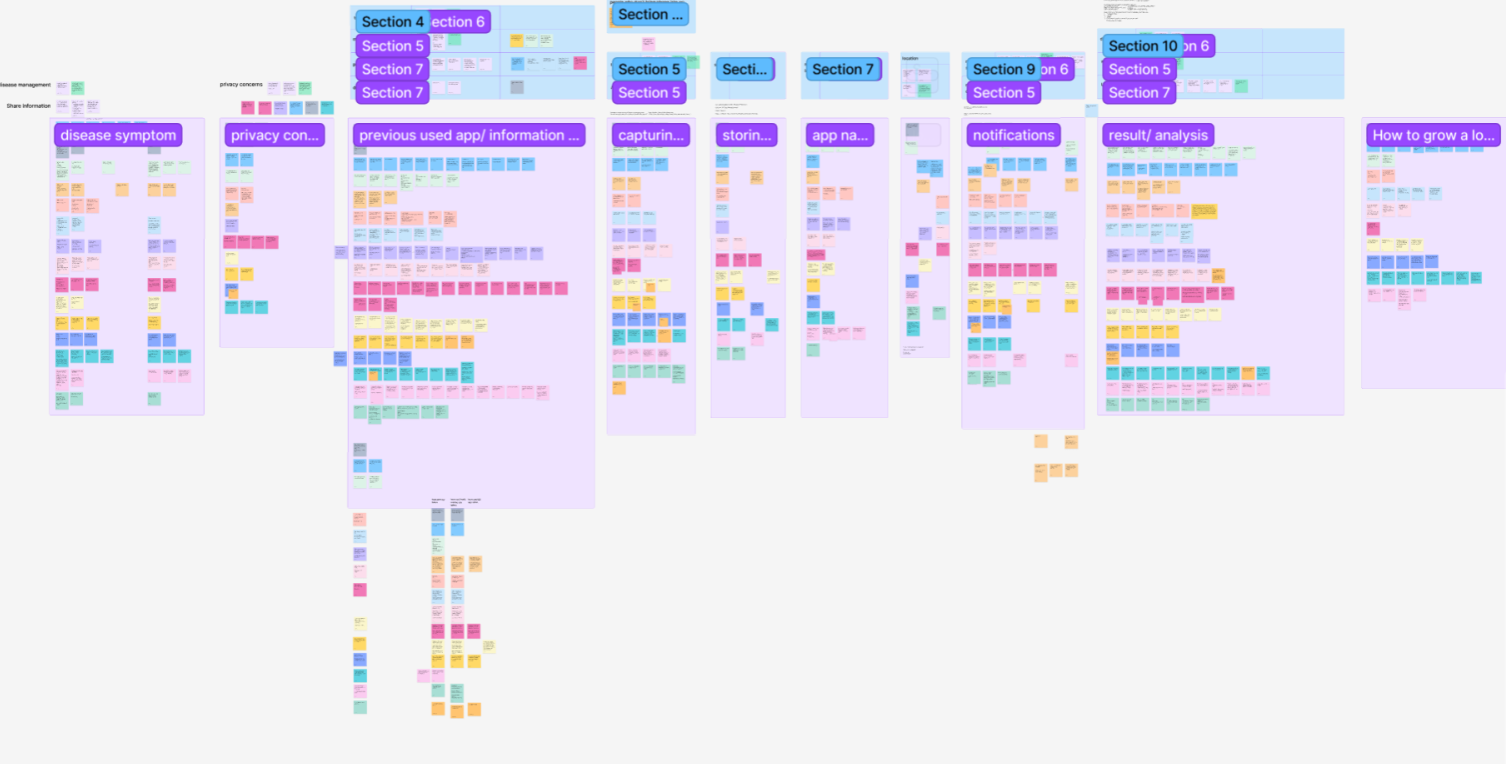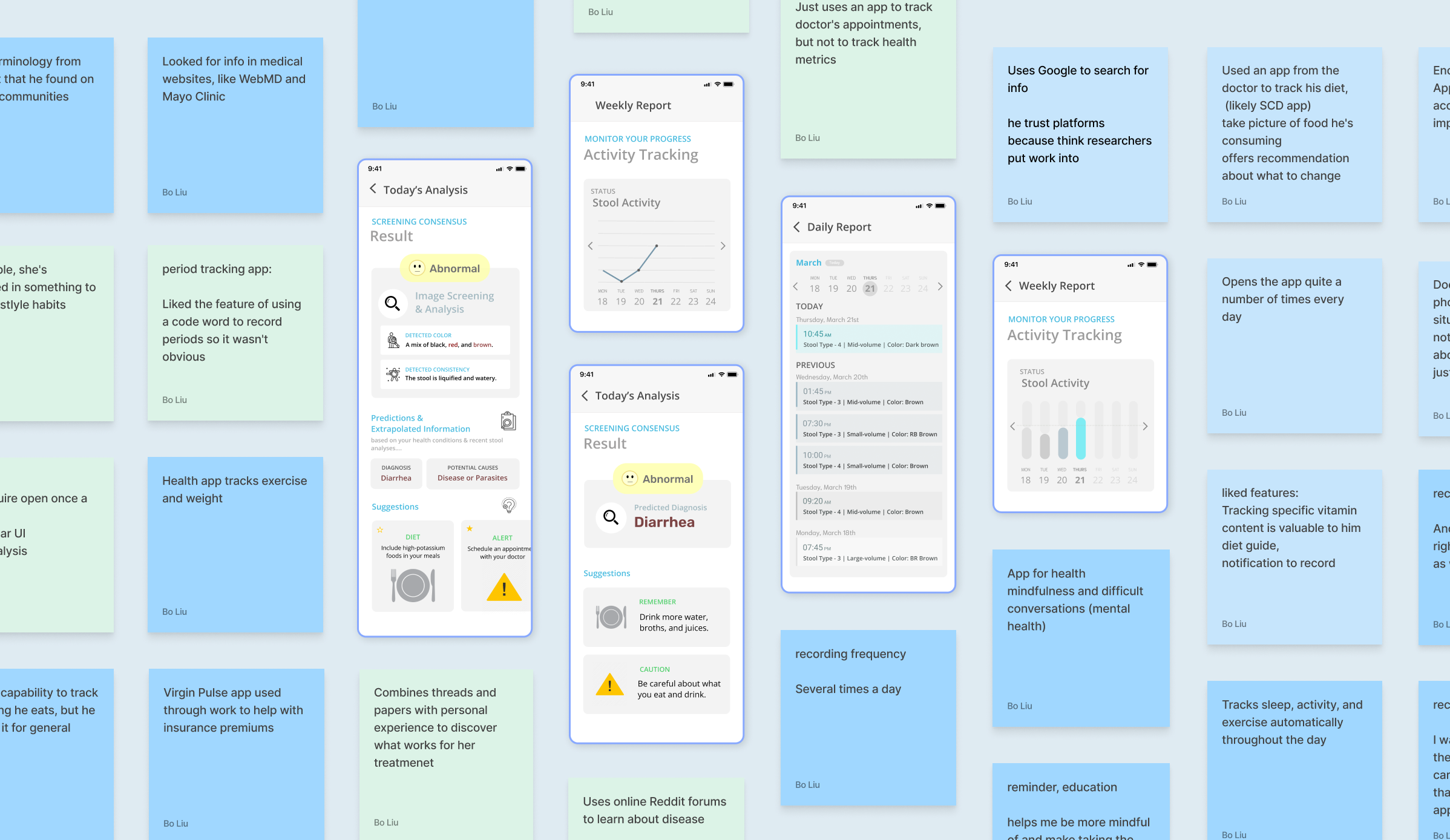Microbiome
Notable Points
- Designed mock-up UI and interview questions
- Pilot studies with experienced User Experience researchers
- Conducted qualitative interviews with 20 IBD patients
- Used thematic analysis to summarize the finding
Updates: Paper submitted to CHI 2023 for review
IBD (Intestinal Bowel Disease) causes pain and lifestyle hindrances for more than 3 million people on a daily basis. While e-health and mobile health applications have been explored as a means to assist patients in managing their disease, the apps still exhibit low uptake 6% among IBD patients. Therefore, we sought to elucidate the reasons patients do not often use mobile health apps to manage their condition in this qualitative semi-structured interview study with 16 current IBD patients. Qualitative review of these interviews revealed that perceived potential benefit of apps in disease management is counteracted by high cost of use (time-consuming tracking requirements) in the trade-off in current apps.
Additionally, participants expressed some surmountable personal and social discomfort with using stool-related apps. Based on these findings, specific suggestions for improvements of gastrointestinal management apps are suggested based on interview feedback from real patients experiencing gastrointestinal disease.
This study bridges a gap between IBD patients with self-monitoring disease needs and apps designed to help them. We find that current IBD apps should have more user-centered designs after conducting 16 semi-structured interviews with current IBD patients. We find key needs participants request of IBD self-monitoring apps:
- providing personalized feedback based on users’ input
- designing customizable features
- explaining personal data usage
- enabling engagement and motivation We also find that participants have concerns about spending too much time on AI-based self-monitoring apps with questionable usefulness in their disease management. Finally, they expressed concerns about the inconvenience or embarrassment of using the app in public places, which needs more design consideration in future IBD app development.

